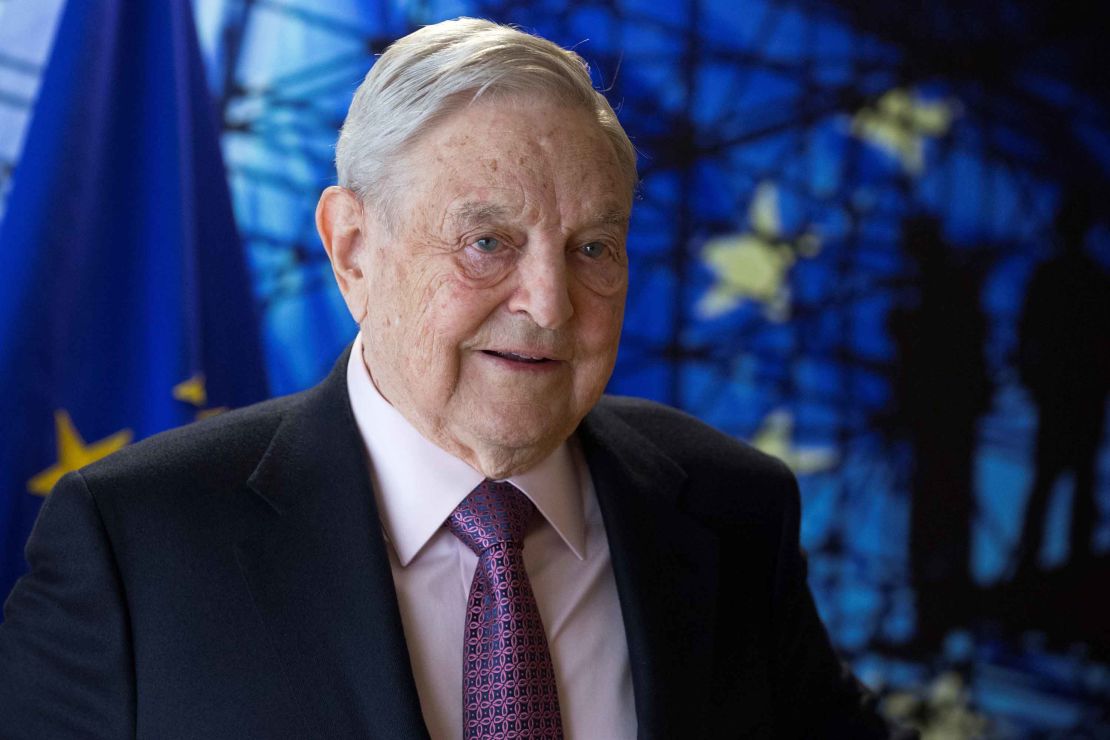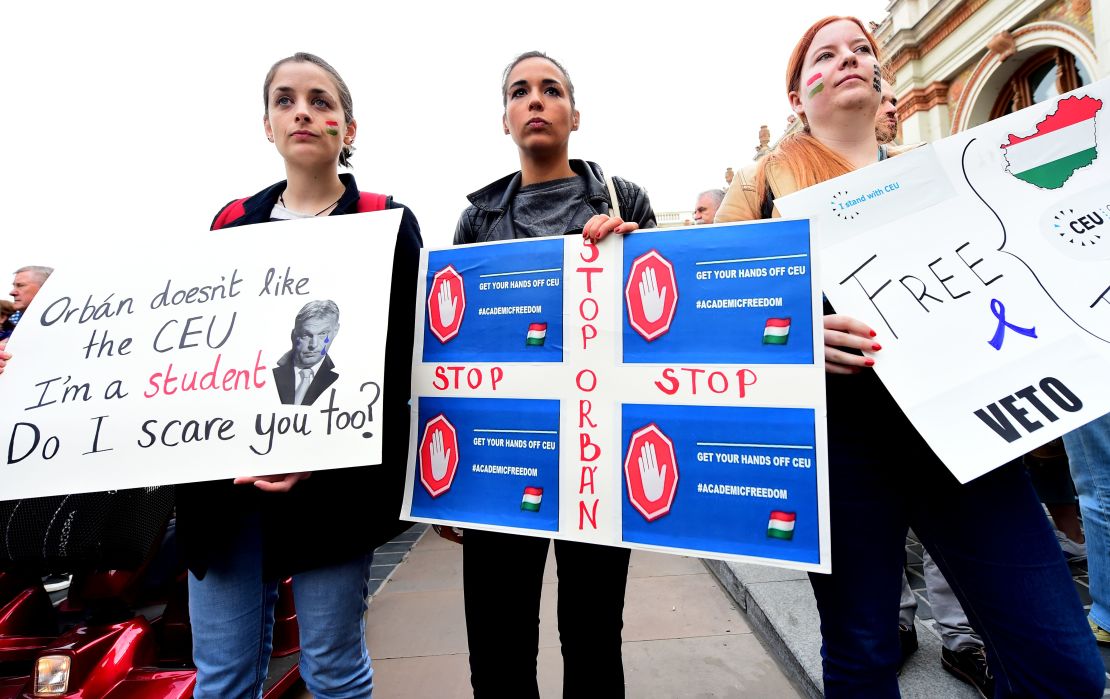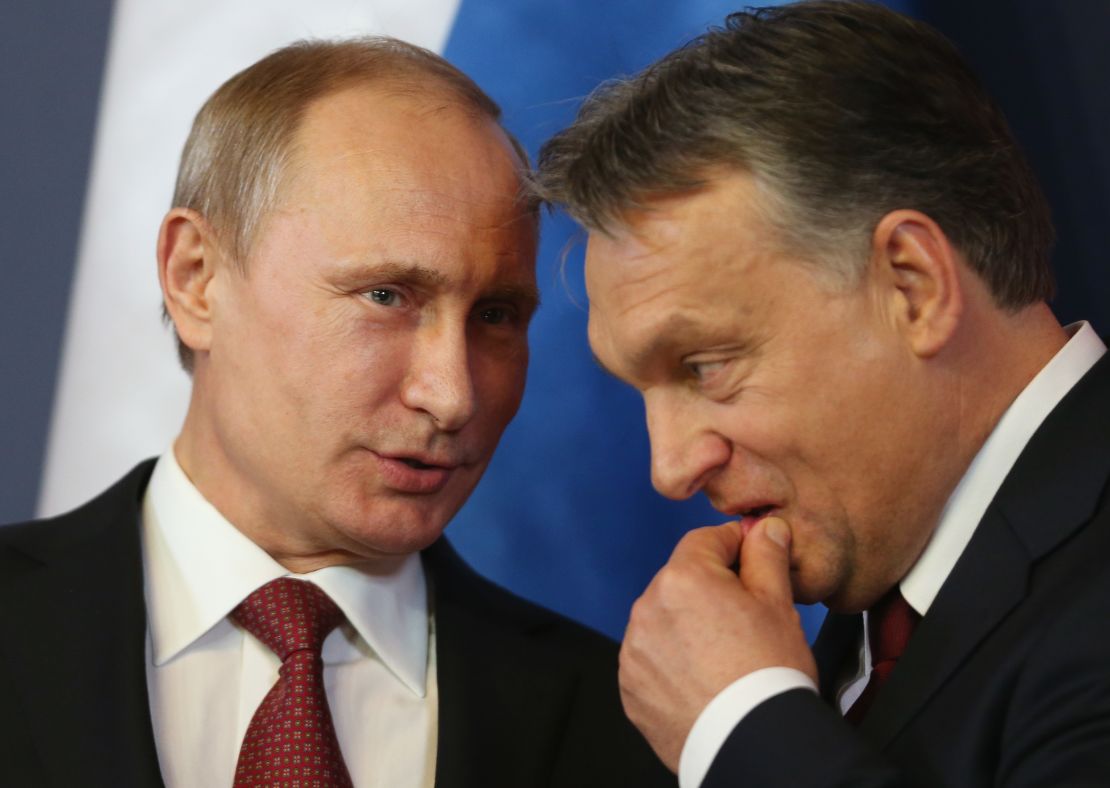When the Financial Times pronounced Wednesday that the philanthropist George Soros was its “Person of the Year,” Twitter ignited with partisan congratulation and animosity.
The announcement seemed to sum up 2018: an elite, metropolitan and global publication honoring a man loathed by populist, nationalist and indeed anti-Semitic adversaries.
The FT described the 88-year old Soros as “the standard bearer of liberal democracy and open society,” which is precisely why populists love to hate him. One tweet said the FT’s definition of liberal democracy was “aka one world government under globalist socialism.”
Since 1979, the Hungarian-born billionaire has poured $32 billion of the money he made as a hedge-fund manager into liberal, democratic causes through his Open Society Foundations. Even before the fall of the Berlin Wall, he was sending copy-machines to Hungary to help the sprouting reform movement.
In the US he has supported liberal causes, such as the American Civil Liberties Union, and he’s delved into the partisan snake-pit. He used millions of his own money in 2004 to try to prevent the re-election of George W. Bush, telling the New Yorker that Bush was “just chosen as a figurehead, an acceptable face for a sinister group” that ran his administration.
In the past decade Soros has earned the animosity of the emergent “illiberal elite” – Presidents Vladimir Putin and Recep Tayyip Erdogan of Russia and Turkey, and Hungarian Prime Minister Viktor Orban, to name but three. And he’s become the bogeyman of the far right in the United States.

Targeted by the right
Both in the US and abroad, Soros’s immense wealth (not least through currency trading), his Jewish heritage and patronage of liberal causes have fed conspiracy theories. He is often called a “globalist” by his enemies, one of a cabal involved in a plot to destroy US sovereignty.
Former Fox News host Glenn Beck has described him as a “puppet-master” aiming “to bring America to her knees financially.”
Right-wing radio host Michael Savage has told his audience, which averages 10 million listeners, that Soros should be arrested for meddling in elections.
Little wonder perhaps that Russian troll factories seeking to influence the 2016 US election generated “dozens of posts blaming George Soros for a myriad of complaints across dozens of the right-targeted Instagram accounts and Facebook Pages,” according to a recent report prepared for the US Senate.
President Donald Trump himself has embraced some of the conspiracy theories about Soros. In his closing campaign ad in 2016, Trump featured video of Soros over the words “…for those who control the levers of power in Washington and the global special interests.”
Last month Trump said he wouldn’t be surprised if someone was funding the migrant caravan making its way through Mexico, as had been alleged by a contributor on the Fox Business Network.
“George Soros?” a reporter asked.
“I don’t know who, but I wouldn’t be surprised. A lot of people say yes,” Trump said.
Others have gone further – much further. Soros received the first of several pipe-bombs sent to individuals critical of Trump in November. The man accused of sending those devices, César Sayoc, had repeatedly mentioned the billionaire on Twitter.
Soros told the Financial Times: “The fact that extremists are motivated by false conspiracy theories about me to kill hurts me tremendously.”
After the pipe-bomb incident, Soros’ son Alexander blamed the atmosphere unleashed by Trump’s election, writing in the New York Times: “A genie was let out of the bottle, which may take generations to put back in, and it wasn’t confined to the United States.”
Indeed, Soros has made many enemies across the Atlantic. When he was a student, Viktor Orbán received a scholarship to study in England from a Soros-supported foundation. Now he is Hungary’s Prime Minister and his government has taken aim at the Soros’ financed Central European University in Budapest, pushing through legislation requiring NGOs to register as foreign agents. The university has since moved many of its courses to Vienna.

Anti-Semitic slurs
In Hungary’s election this year, Orbán accused his erstwhile benefactor of encouraging the flow of Muslim migrants into Europe. Orbán’s election campaign included billboards picturing a laughing Soros with the slogan: “Don’t let Soros have the last laugh.”
Bulcsú Hunyadi, senior analyst at the think tank Political Capital in Budapest, said Orbán had portrayed Soros as the “main machinator” of migrants who would “destroy the Christian, traditional identity and ethnic homogeneity of the continent.”
Orbán also used traditionally anti-Semitic innuendo in his attacks on Soros. Berating “Uncle George” at a rally in March, he said Hungary’s enemies were “not open but hiding; not straightforward but crafty; not honest but base; not national but international; does not believe in working but speculates with money.”
The far right in France has picked up the theme. In May, the magazine Valeurs Actuelles, ran the headline “The Billionaire Plotting against France: Revelations on George Soros, the Global Financier of Immigration and Islamism.”
Turkish President Recep Tayyip Erdogan has also played the anti-Semitic card in his attacks on Soros. Just last month, he told a meeting that “the famous Hungarian Jew” had been behind protests in 2013. He claimed Soros was trying to divide and destroy nations – prompting the Open Society Foundations to cease operations in Turkey, citing “an increasingly hostile political environment.”
Soros’ organization was expelled from Russia in 2015, and this summer Putin went so far as to compare him with the Russian oligarch Yevgeny Prighozin, who’s alleged to have organized the Russian troll factories and is under US sanctions. Soros “meddles in all sorts of situations around the world,” Putin said.
Despite the onslaught, Soros seems undaunted – even energized. In July he tweeted: “I must be doing something right to look at who my enemies are.”
Soros rarely shrinks from controversy and has identified with liberal and even radical causes in the US. Writing last month in the Jewish magazine, Tablet, James Kirchick noted that Soros had donated to several of the groups involved in the protests against Trump’s nomination of Brett Kavanaugh to the Supreme Court.
“Polarization, tribalization, partisanship, and a general breakdown in civic discourse are all serious problems in America right now,” Kirchik said. And Soros himself – by supporting groups such as MoveOn – “must answer for some of the damage.”

Forces against him
Soros seems to believe that the tide is running against his ideas. In a speech in Brussels last year he warned the EU was surrounded by hostile governments: in Russia, Turkey, Egypt and “the America that Trump would like to create but can’t – but can’t.” He lamented “the rise of anti-European, xenophobic parties that are motivated by values that are diametrically opposed to the values on which the European Union was founded.”
Recognizing the forces ranged against him, he has doubled down – transferring to his foundations a further $18 billion of his wealth. Among current projects: advocating for a 2020 census in the US that would better represent minorities, and the “Best for Britain” campaign, which seeks a second referendum on the UK’s membership of the European Union.
Soros speaks about two formative experiences that still guide his work. In Nazi-occupied Hungary, his father provided other Jews with false identity papers to help them survive. “Not only did we survive, but we managed to help others. This left a lasting mark on me,” Soros has written.
And as a student in London he was taught by the Austrian philosopher Karl Popper, author of “The Open Society And Its Enemies.”
Soros’ foundations were named after the book, in which Popper writes: “If we are not prepared to defend a tolerant society against the onslaught of the intolerant, then the tolerant will be destroyed, and tolerance with them.”
It’s a declaration that has driven George Soros for much of his life.

